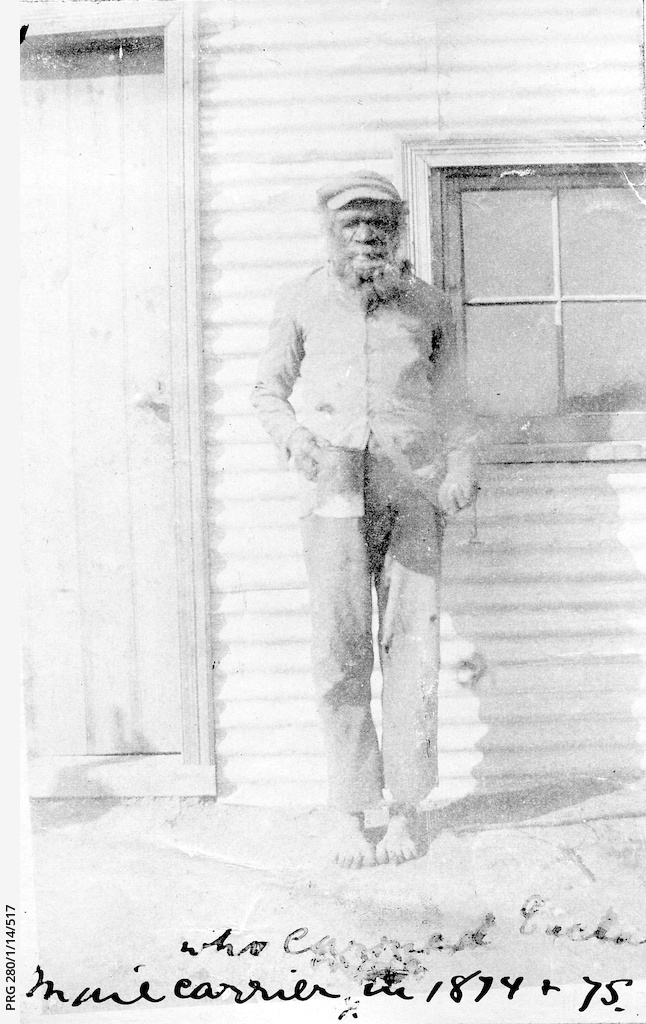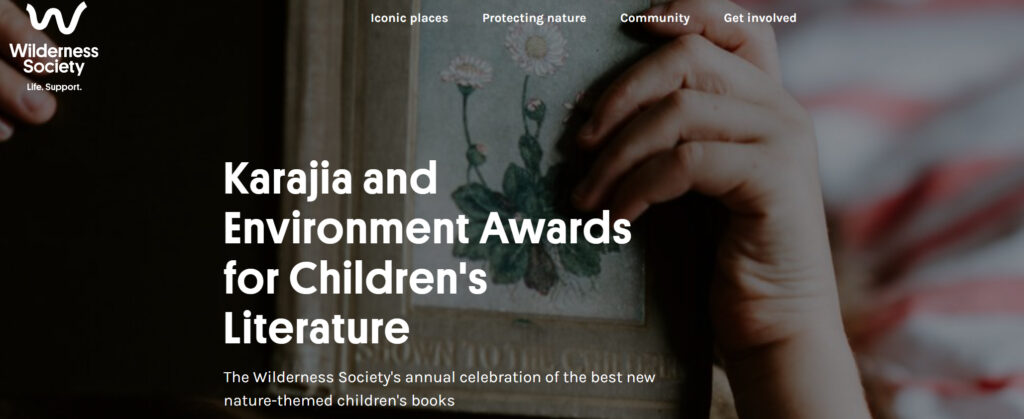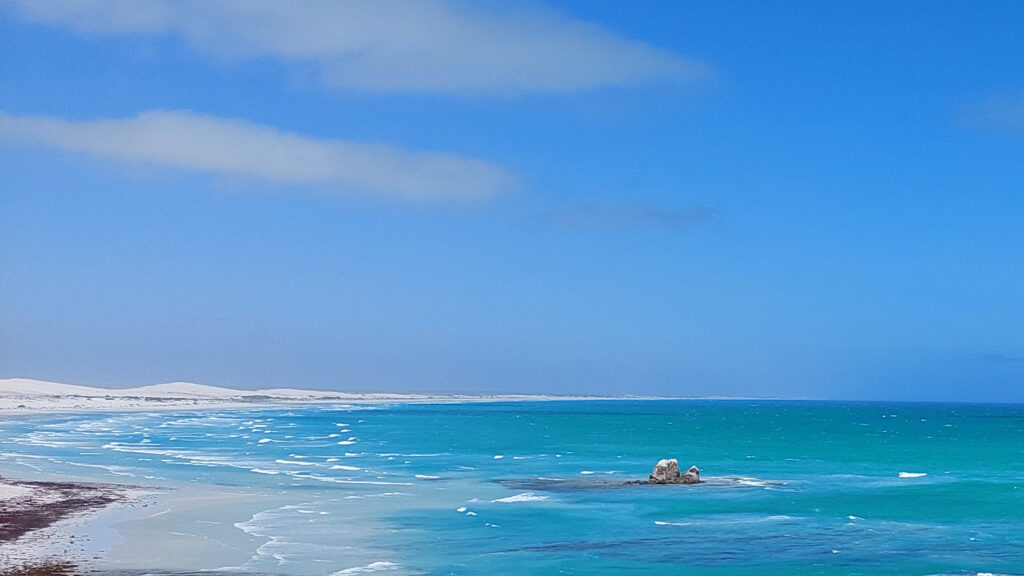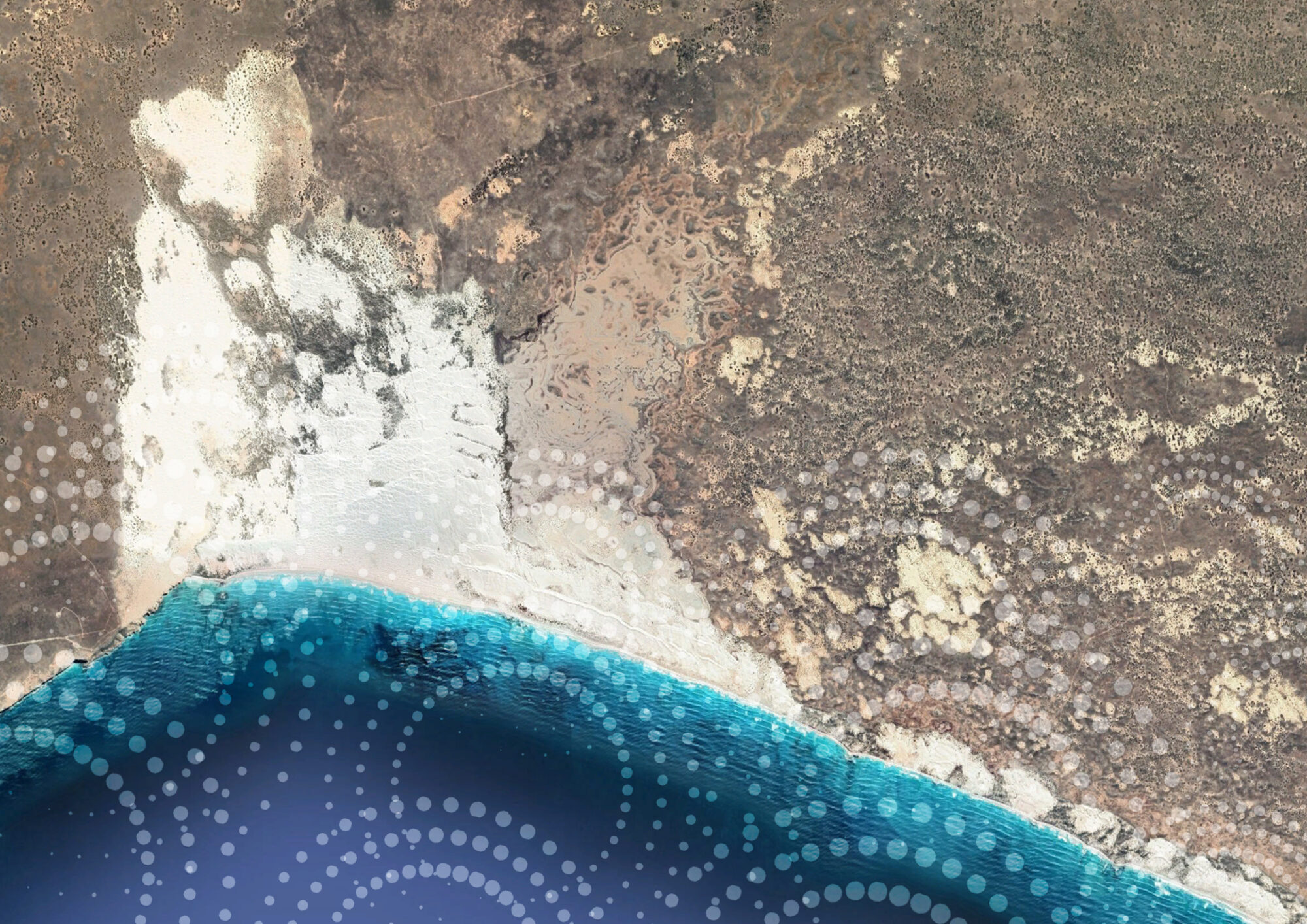Yilgamba comes from our Mirning language yer, place and gamban, warm and is a warm camping or sleeping place by the fire, sheltered from the winds among the youlbari, sandhills. It is a great place of gathering for ceremonies and fishing is abundant. For gabbie, drinking water this is the main gowie, large water soak, though this is now covered by the drifting sands. Our word Goonminyerra is the base of our law given by Jeedara and means goo-mera, one min, Mirning friendly, caring people of this yerra, place of our dwelling.
This is the heart of our Country for our Yerkala Mirning clan family who are the Whale and Dingo totem bloodline, the Jeedara Djalyi, Seafoam People of the Billia, Sea. A hundred years ago, it was Mickey Free Lawrie who continued this bloodline from Creation times and he was a great Marban Bai, Whale Songman and grandfather to our Senior Elders. He was known as Thootha, which means the boss dingo, and his main plant totem was wanyiri, which is the native currant or small ngoora, native grape. Both native grape and smaller native current grow together among the youlbari, sandhills of our coast and carry the salty-sweet taste of our Country.
Mickey Free Lawrie was a Karajia, a keeper of our ancient stories, which includes the great whale Jeedara’s Creation of our Country. Mickey Free inherited this bloodline from his mother, Tabilya and followed in his learning lineage from his Uncle Jimmy, who was also known as Koolbiri and Jimmy Mailman. Uncle Jimmy is pictured here at White Well, our winter camp for Yilgamba. In turn, Mickey Free’s son, Albert Lawrie, lived at White Well and this is where our oldest Elder, Aunty Dorcas Miller, was born in 1938. She holds the stories for our Women’s Country to the East of Yilgamba. To the West, is Men’s Country, where Jeedara continued on his Creation journey and these stories are held by Uncle Bunna Lawrie, our current Karajia, Marban Bai and Whale Songman. It is from Aunty Dorcas Miller and Uncle Bunna Lawrie that these Whale Dreaming stories are shared today.

In his lifetime, Koolbari was recorded as an “Unhonoured Hero” in an article from 1912 and, when he passed, the Saturday Journal reported on 25 August 1923:
“He was the Royal Mail between Fowlers Bay and Eucla for many years. He ran with the mail bags every fortnight from the Bay to Eucla, a distance of 280 miles, and returned during the following fortnight. He could do the journey in faster time than a man on horseback, owing, I presume, to his superior bushcraft, and his knowledge of reliable water supplies.”
Historical Records of our Family at Yilgamba
John Edward Eyre travelled through our Country in the early 1840’s. Several of his diary entries have been given to us, as records about our ancestors and Country. For example, here he recorded our name Yeer Kumban Kauwe (Chapter XIII, 7 January 1841) and our name gum-me-ra, one, which also connects with our word Goonminyerra (Chapter VII, Dialects for The Head of the Great Australian Bight)
Daisy Bates’ fieldnotes include our dhalyi (djalyi ) family at Yilgamba (Yergamban) and Mickey Free Lawrie is recorded under his tribal name, Thootha. (Series 12 Section V 3b, Totems: Notes from the Eucla district, p.22.)
Daisy Bates’ archive includes an article called “An unhonoured hero: Mailman Jimmy of the west coast” in The Eyres Peninsula Methodist, Feb-April 1912. Including how “in 1874 that Mounted-Constable Richards, then stationed at Fowler’s Bay, persuaded two aboriginals to attempt the journey on foot, carrying the mailbags” to and return from Eucla. The diaries of Mounted-Constable Richard’s wife record the locals of Fowlers Bay, including Mailman Jimmy.
There is a photograph of Uncle Jimmy, also known as Koolbiri and an article about him called Mailman Jimmy (Saturday Journal, 25 August 1923, p.17. 25)
Ernest Giles recorded that “Old Jimmy’s native name, by-the-way, was Nanthona”, which is a European rendering of Ngandatha, a traditional name for the Mirning of the Nullarbor Plains. (Australia Twice Traversed, Book 3, Chapter 1.)

Karajia Award for Children’s Literature
Today the Mirning Karajia are honoured through the naming of the Karajia Award for Children’s Literature, which is awarded annually by the Wilderness Society during Book Week. The Karajia Award for Children’s Literature celebrates excellence in children’s literature by Aboriginal or Torres Strait Island authors and/or illustrators, who honour Connection to Country and tell stories exploring land, community, culture and language.


